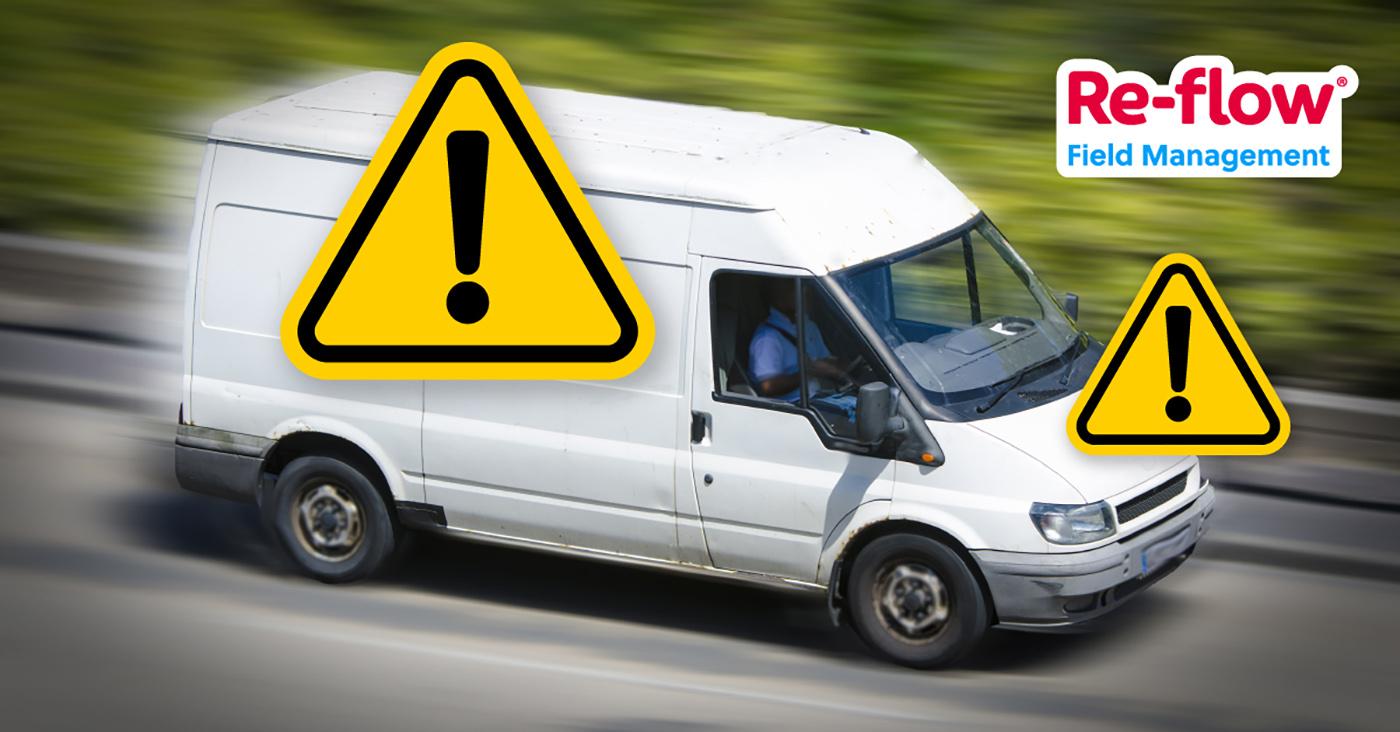
The DVSA has announced a new focus on light goods vehicles (LGVs), aiming to clamp down on unsafe practices and reduce the high rate of serious incidents.
Over the next year, their roadside enforcement inspectors will target higher-risk industries where accidents and enforcement actions are on the rise – which will impact many in highways and elsewhere in UK infrastructure.
Why are LGVs being targeted?
The government’s Moving On blog blames ‘operators of LGVs who don’t have robust systems to ensure safety, flout the rules, and put lives at risk.’
The rationale for the change is backed up by statistics.
- The DVSA check around 20,000 LGVs every year, and over 50% of these encounters result in enforcement action for serious defects, insecure loads, and significant overloads.
- The annual MOT test failure rate for LGVs is around 4 times higher than HGVs, and much higher than the failure rate for cars.
- This is blamed on two factors. First, that LGV operators aren’t required to adopt the same safety systems as heavy vehicle operators. Second, that LGVs are heavily used, with excessive milage and often heavy loads, leading to degradation of the vehicles.
- Of particular concern, road users are more likely to be seriously injured or killed by an LGV than an HGV. In 2023-24, there were 3,000 incidents resulting in either a fatality or a serious injury with LGVs, compared to less than 1,000 with HGVs.
The compliance gap for LGV fleets and the DVSA strategy
As most LGVs are not tied to the same operator licence framework as HGVs, many fleets miss out on the structure, monitoring, and mandatory checks that are second nature elsewhere.
The DVSA’s strategy is to engage with the industries and trade associations to make sure the rules and guidance are clear – but also to push enforcement and tougher roadside checks.
This makes proving compliance in a practical way that fits your drivers and your day-to-day operations far more important than it used to be.
How technology helps businesses stay compliant, and prove it too
Digital field management software like Re-flow can support businesses in every area of compliance and safety.
For example, Re-flow Field Management is used by hundreds of companies across UK infrastructure, in part to build safer, more reliable fleet processes that protect drivers, clients, and the public and keep them ready for inspections.

Re-flow’s intuitive, easy-to-use compliance and audit records
Re-flow Field Management is an end-to-end operations management platform with multiple features designed to improve the ability to manage remote workers and sites.
Re-flow provides teams with:
- An easy-to-use interface: quicker, more intuitive app-based compliance checks and forms (daily vehicle checks, defect reports, and so on) transform worker attitudes to the process – leading to genuine buy in.
- Visibility and mandating tasks: easy management of compliance from the office, so you can enforce and mandate tasks to guarantee they get done, and remove any doubt that your team is audit ready.
- KPIs: Clear data showing any individuals letting the team down and not doing their tasks, which opens up new opportunities to address issues and raise standards.
- Service and MOT reminders: never miss a service or MOT deadline again – instead, automate reminders in advance to ensure every van in your fleet is ready to go when you need it.
The defect report workflow and records for auditing
Beyond ensuring that checks are done and your vehicles are serviced, Re-flow helps your teams in other ways too.
- If a defect is flagged, the system automatically notifies the right person – whether that’s a fleet manager or mechanic.
- Re-flow blocks the vehicle from being assigned on the scheduler until it’s fixed.
- The result: issues are reported quickly, action is triggered immediately, and non-compliant vehicles never slip back onto the road.
- In the office, the system provides a database of all your compliance procedures. This leads to filterable, audit-ready reporting, easy data sharing across teams if necessary, and complete transparency.
- And if your field teams are stopped by the DVSA, they can have everything they need to prove compliance accessible on the app.
- Any missing data can be quickly searched for and sent directly to the field team that needs it.
Field management software like this gives businesses confidence when it comes to meeting the demands of DVSA inspections.
As Abdul Hajji of Traffic Management Installations explained in their Re-flow case study: “We have a policy where before anybody leaves the site, they have to do a vehicle check. And if anything fails, Re-flow gives a notification to our mechanic or anybody that is looking over our fleet to take action on that specific vehicle.”
Discover more about how Re-flow transforms asset management for civils and highways organisations.





